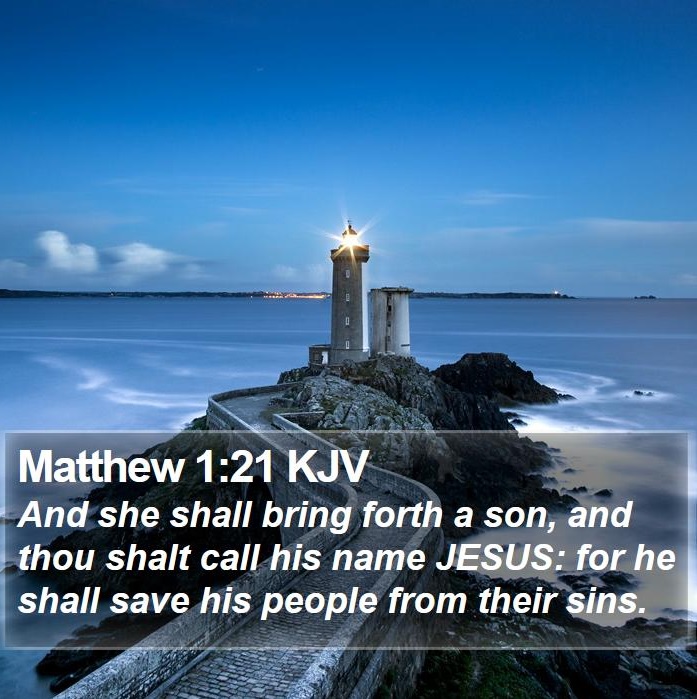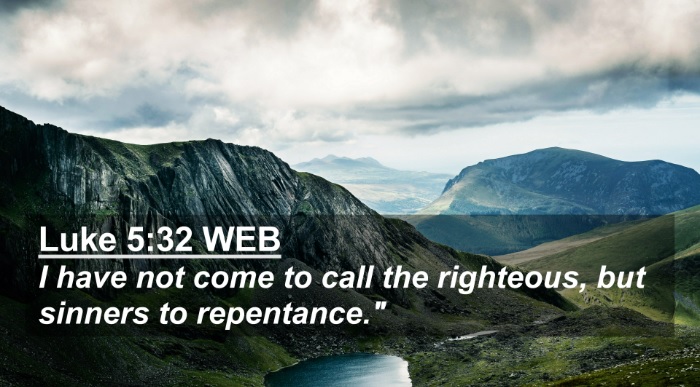“Go therefore and make disciples of all the nations…teaching them to observe all that I commanded you; and lo, I am with you always, even to the end of the age” (Matthew 28:19-20, NASB).
——————–
Contents:
1) “What Mary Could Not Do” (Steven J. Wallace)
2) “Just as I Am” (Doy Moyer)
——————–

-1-
“What Mary Could Not Do”
Steven J. Wallace
There are many godly women in the Scriptures, but Mary holds a special place in our hearts, because it was her of whom the Savior came. However, some have built up ideas and exaggerations about this godly woman that are purely unfounded. In this short study, we want to simply look at some things that Mary could not do.
1. Mary could not be the source of origin of the Son of God. In other words, Jesus Christ’s existence did not begin with her. He existed before her as is implied by the statement that He is the “root” and “offspring” of her ancestor, David (Rev. 22:16). In fact, Jesus was in the beginning with God (John 1:2). Further, He is the One who created all things. He is the “firstborn of all creation,” an expression that is defined by Paul as, “He is the image of the invisible God, the firstborn over all creation. For by Him all things were created that are in heaven and that are on earth, visible and invisible, whether thrones or dominions or principalities or powers. All things were created through Him and for Him.” “Firstborn” is an expression of position and authority. As such, Jesus is the “beginning of the creation of God” (Rev. 3:14). John does not say that He is in the beginning of created beings, but rather the beginning, that is, origin, source, and governor of the creation of God. It is in this vein that the word is to be applied to Christ (cf. word usage “magistrates,” Luke 12:11; “power,” Luke 20:20; “rule,” 1 Cor. 15:24; “principality,” Eph. 1:21; “rulers,” Tit. 3:1; “first,” Heb. 2:3; 5:12; “domain” Jude 1:6).
2. Mary could not ignore her maternal instinct. As the Lord’s mother she cared very deeply about her Son. When He had lingered in Jerusalem, He had become separated from her. She and Joseph were worried sick as to where He had gone. They searched everywhere from a day’s journey away among their relatives and then back to Jerusalem frantically looking for their Son for three days. Finally, they found Him in the temple. Jesus is likewise found today in the temple, the church of Christ. But while others were astonished at His understanding and His answers, she was perplexed with distress that she could not find her Son all this time. “Son, why have You done this to us? Look, Your father and I have sought You anxiously” (Luke 2:48). Any parent could empathize with her. This would be the natural response of any loving and concerned mother. She would have equally been as emotionally upset as any mother would be when she stood before the cross watching her firstborn bleed to death (Luke 2:35; John 19:25). The cross and your salvation was not only costly to Jesus, but it was also to His mother. What we sometimes complain about as being “too hard” or “too difficult” in relation to doing the work of the church and representing Christ on earth embarrassingly pales in comparison to such a cost. Such statements that come out of the mouth of Christians only show an admission of frail discipleship where other things are competing with Christ, “Whoever desires to come after Me, let him deny himself, and take up his cross, and follow Me” (Mark 8:34; “other things” see Mark 4:19).
3. Mary could not disrupt the Lord’s mission. After the episode, Jesus responded to her, “Why did you seek Me? Did you not know that I must be about My Father’s business?” (Luke 2:49). Our Lord always places what is most important first. His business was to be about His Father’s business. When He was older, and after He appointed for Himself apostles, some of His relatives came apparently to rescue Him from fanaticism, “But when His own people heard about this, they went out to lay hold of Him, for they said, ‘He is out of His mind’” (Mark 3:21). We find Mary and her sons outside seeking for Him a few verses later to which He responds, “. . . ‘Who is My mother, or My brothers?’ And He looked around in a circle at those who sat about Him, and said, ‘Here are My mother and My brothers! For whoever does the will of God is My brother and My sister and mother” (Mark 3:33, 35).
4. Mary could not be a mediator between God and mankind. She was in need of a savior as any man or woman is (Rom. 3:23). As she stood before the cross, she stood before her Lord and her Savior. Men have elevated Mary to a status which she never knew nor would she be willing to accept. “And Mary said: ‘My soul magnifies the Lord, And my spirit has rejoiced in God my Savior” (Luke 1:46, 47). Praying to and through Mary is not only vain, but idolatry and insulting to the ministry of Jesus Christ. Peter stated boldly with the Holy Spirit, “… for there is no other name under heaven given among men by which we must be saved” (Acts 4:12). “No other name,” means “not any other name!” The name of Jesus excludes the name of Mary, Mark, Matthew, Peter, and Paul (cf. 1 Cor. 1:12, 13). “For there is one God and one Mediator between God and men, the Man Christ Jesus, who gave Himself a ransom for all, to be testified in due time” (1 Tim. 2:5, 6).
— via Truth Magazine, Volume LV, Number 7, July 2011 https://www.truthmagazine.com/archives/volume55/2011_07_Jul_Truth_Magazine.pdf
——————–

-2-
“Just as I Am”
Doy Moyer
Just as I am without one plea,
But that Thy blood was shed for me.
And that Thou bidd’st me come to Thee
O Lamb of God, I come. (Charlotte Elliot)
I have long thought that “Just as I am” is a beautiful, inspiring hymn. While I don’t know that it was initially written to be an “invitation song,” as we call it, it has become one of the best known for that. My dad, Forrest D. Moyer, used to tell me that back when meetings were much more active and well attended (tent meetings, two week meetings, etc.), he had more responses to that song than any other. It does tend to touch the emotions in a powerful way when someone has first been touched by Scripture to reflect upon his or her relationship with God. But this is not really about the hymn, per se.
“Just as I am” is not saying that we come to God without needing to repent or that somehow we are good enough to merit what He gives. As the hymn notes, we come to Him “to rid my soul of one dark blot,” and that when we come, God will “welcome, pardon, cleanse, relieve.” This is God’s promise. Scripture is clear on the need for repentance (Acts 2:38; 3:19). What the idea does do, however, is point to the fact that God wants us to come to him as we are — sick, hurting, broken, and in need of His healing. We cannot just fix ourselves first, then try to come to Him as if we are capable of that. There are a couple things I think about with this:
1. I have talked with people who have thought that they have to perfect their lives before they were worthy to come to the Lord. This is backwards. If you are going to wait until you have somehow made yourself worthy, you’ll never come to Him. God doesn’t say, “Only the worthy may come.” He tells all to come, and He will forgive and heal. Then our manner of life can reflect walking worthy of the calling (Eph 4:1).
If you think you are not good enough to come to the Lord, you are the very one who needs to come to the Lord now. The truth is that you are not good enough. Nor am I. That’s the point of God’s grace. Come just as you are and you will be changed into a new creation: “Therefore, if anyone is in Christ, he is a new creation. The old has passed away; behold, the new has come” (2 Cor 5:17).
2. If you think that you aren’t good enough to begin with, you might have corollary feelings that God just doesn’t want you. After all, how can God want someone who has been impure? How can God love the unlovable? How can God desire to have in His fellowship any who has been evil, immoral, and so stained by the world? What hope can I possibly have for God to want to do anything with me?
Let’s clear this up now: God wants you! He wants you if you have been stained, immoral, and evil. He wants you when you are broken and sick. He wants you when you have hit bottom and have nowhere else to turn. He wants the drug addict, the alcoholic, and the sexually immoral. Come to Him just as you are in your broken state…
And you will be changed: “And such were some of you. But you were washed, you were sanctified, you were justified in the name of the Lord Jesus Christ and by the Spirit of our God” (1 Cor 6:11).
“Those who are well have no need of a physician, but those who are sick. I have not come to call the righteous but sinners to repentance” (Luke 5:32).
Think of the sinful woman in Luke 7:36ff. Think of the woman at the well (John 4). Think about the fact that the Lord, against the convention of the Pharisees, sat with tax collectors and sinners (Matt 9:10-13).
Let us, then, admit that we aren’t good enough. We do not waltz up to God’s banquet table without an invitation. We are invited. We might first be found on the by-ways, but we are yet invited.
Let us admit, then, that that we are weak, hurting, sick, and in need of the Great Physician. There is no one whom He cannot heal, none whom He cannot re-create, none whom He cannot bless. The only thing left to get rid of, the one thing that keeps us from coming to Him, is our pride. Give that to Him, too, and He will give grace to the humble.
There may be many conflicts, doubts, fears within and without. Yet we can rely upon the promises of God and entrust our souls to Him who loved us and died for our sins.
O Lamb of God, I come!
— via Bulletin Articles of the Vestavia church of Christ, November 15, 2020
——————–
Ezekiel 33:11
“Say to them, ‘As I live!’ declares the Lord GOD, ‘I take no pleasure in the death of the wicked, but rather that the wicked turn from his way and live. Turn back, turn back from your evil ways! Why then will you die, O house of Israel?'” (NASB).
——————–
The Steps That Lead to Eternal Salvation
1) Hear the gospel — for that is how faith comes (Rom. 10:17; John 20:30-31).
2) Believe in the deity of Jesus Christ, the Son of God (John 8:24; John 3:18).
3) Repent of sins. For every accountable person has sinned (Romans 3:23; Romans 3:10), which causes one to be spiritually dead (Ephesians 2:1) and separated from God (Isaiah 59:1-2; Romans 6:23). Therefore, repentance of sin is necessary (Luke 13:5; Acts 17:30). For whether the sin seems great or small, there will still be the same penalty for either (Matt. 12:36-37; 2 Cor. 5:10) — and even for a lie (Rev. 21:8).
4) Confess faith in Christ (Rom. 10:9-10; Acts 8:36-38).
5) Be baptized in water for the remission of sins (Mark 16:16; Acts 2:38; 22:16; 1 Pet. 3:21). This is the final step that puts one into Christ (Gal. 3:26-27). For from that baptism, one is then raised as a new creature (2 Cor. 5:17), having all sins forgiven and beginning a new life as a Christian (Rom. 6:3-4). For the one being baptized does so “through faith in the working of God” (Col. 2:12). In other words, believing that God will keep His word and forgive after one submits to these necessary steps. And now as a Christian, we then need to…
6) Continue in the faith by living for the Lord; for, if not, salvation can be lost (Matt. 24:13; Heb. 10:36-39; Rev. 2:10; 2 Pet. 2:20-22).
——————–
Tebeau Street
CHURCH OF CHRIST
1402 Tebeau Street, Waycross, GA 31501
Sunday: 9 a.m. Bible Classesand 10 a.m. Worship Service. We also have a Song Service at 5 p.m. for every first Sunday of the month.
Wednesday: 7 p.m. Bible Classes
evangelist/editor: Tom Edwards (912) 281-9917
Tom@ThomasTEdwards.com
https://thomastedwards.com/go/all.htm/ (This is a link to the older version of the Gospel Observer website, but with bulletins going back to March 4, 1990.)







